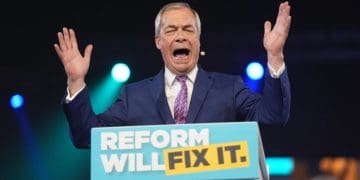In anticipation of a potential upcoming election, the Labour Party is opting for a cautious strategy, deviating from radical reforms in its manifesto to fortify policies against potential attacks from the Conservative Party. Shadow cabinet ministers have until February 8 to submit policy proposals for the manifesto, with a committee set to evaluate which commitments necessitate legislation in a king’s speech shortly after taking office.
Keir Starmer‘s party aims to finalize both documents by mid-March, anticipating the possibility of an early spring election called by Chancellor Rishi Sunak. Sources reveal that Labour, in a departure from its previous £28 billion yearly commitment to green investment, will focus on achieving clean energy by 2030 but with reduced financial implications. Additionally, the party does not intend to legislate the creation of a new national care service in its initial king’s speech. Instead, the emphasis will be on fair pay agreements for care workers, along with issues of recruitment and retention, incorporated into a broader workers’ rights bill.
While previous promises from Keir Starmer indicated plans to abolish the House of Lords in the first term, the party is expected to commit only to limited changes, potentially legislating solely for the removal of the remaining 91 hereditary peers. This cautious approach stems from economic uncertainties and a desire to present a smaller target on issues like social care, which have historically impacted election campaigns negatively.
Labour’s focus on social care involves a more gradual approach, rallying union support for its plans. The proposed fair pay agreement aims to raise wages and create uniform pay for care workers across England, making care jobs more attractive and addressing workforce shortages. Amidst the downplaying of its green prosperity plan, Labour’s new flagship policy centers around a new deal for working people, including enhanced workers’ rights from the first day of employment and the eradication of zero-hours contracts.
Prioritized bills may include a “fiscal lock” requiring government plans to be reviewed by the Office for Budget Responsibility and Labour’s commitment to roll out breakfast clubs in primary schools. The manifesto is also expected to highlight pledges on childcare, increased tax on private equity managers, and a promise to build 300,000 homes annually. The cautious approach is seen as an effort to strengthen Labour’s standing while avoiding potential pitfalls in the upcoming election.
Why not check out: ‘Not An Escalation!’ Says Tory MP as UK Joins US in Third Round of Airstrikes on Houthi Targets in Yemen







